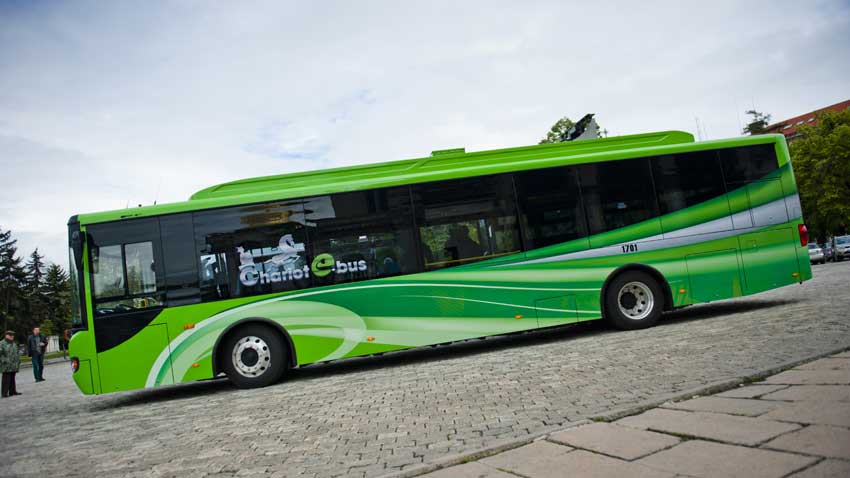A new-generation electric bus that uses ultra-capacitors instead of traditional batteries is already transporting passengers in Sofia. These modern vehicles already known in the U.S. and China come to Europe for the first time. Ultra-capacitors give less mileage than lithium-ion batteries but the charging time is much shorter. This advantage combined with the low weight of the capacitors and their lower cost in comparison to batteries makes them perfectly suitable for use in the urban public transport. According to Tsvika Zimmerman, Chairman of the Board of Directors of Bulgarian - Israeli Company Chariot Motors, the cost per kilometer with the new vehicle is 80 percent lower than that of conventional diesel buses. Figures are yet to be confirmed during the nine-month trial of the electric bus in the streets of Sofia.
The other big advantage of the modern bus is the lack of harmful emissions. Sofia is one of the most polluted capital cities in Europe and the municipality has been working on a program for making public transport environmentally friendly.
"During the past year, the Sofia Municipality invested nearly 200 million euro in various projects for the purchase of environmentally-friendly vehicles", Mayor Yordanka Fandakova says. "20 new trams have been delivered to Sofia and some of them already serve the No1 line in the city. By the end of the year we expect 50 new trolley buses, as well. At the end of July the first 5 out of 126 new environmentally friendly buses will also arrive to Sofia. These huge investments are financed by the Environment Protection Operational Program and the Operational Program for Regional Development."

Mrs. Fandakova added that the municipality also encourages the purchase of electric cars, which are allowed free parking in the blue and green areas of the city. According to Fandakova, there are 65 electric cars registered in Sofia.
The new electric bus that is currently being tested serves one of the existing trolley bus lines of the city. Here is what us:
"It is easier to drive than traditional trolleys as you are not limited by the grid. It is like a trolley bus that does not need to draw electricity from the grid, but uses ultra-capacitors. They charge fully for 8 minutes and this is enough for the bus to travel 30 kilometers”, driver Ivo Atanasov toldRadio Bulgaria.
Tsvika Zimmerman from Chariot Motors has voiced intentions in case of good results to move the assembly of such buses to Bulgaria. Currently they are produced in China by Shanghai company Hager, which is a partner of Chariot Motors. Mr. Zimmerman's statement for Radio Bulgaria is contained in the audio file.
English version: Alexander Markov
The Bulgarian minority in Romania marked a significant event with the official opening of the Bulgarian Inn in the village of Izvoarele (Hanul Bilgarilor), Teleorman County (Southern Romania)- a locality with Bulgarian roots dating back over 200 years...
The 14th edition of DiVino.Taste, Bulgaria’s leading forum for wines and winemakers, will take place from 28 to 30 November at the Inter Expo Centre in Sofia. Over 80 producers from all wine regions will participate, offering tastings of around 600 of the..
Minutes before the second and final reading, at the parliamentary budget and finance committee, of the state budget for 2026, the leader of the biggest party represented in parliament GERB Boyko Borissov halted the procedure and sent the draft bill..

+359 2 9336 661
